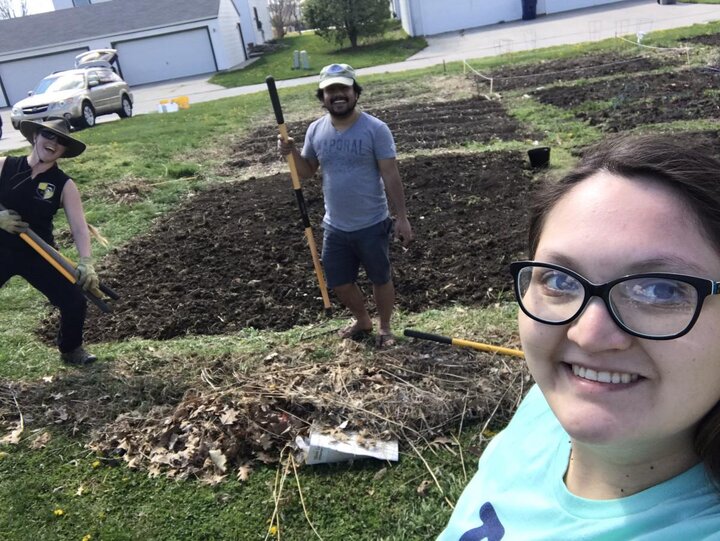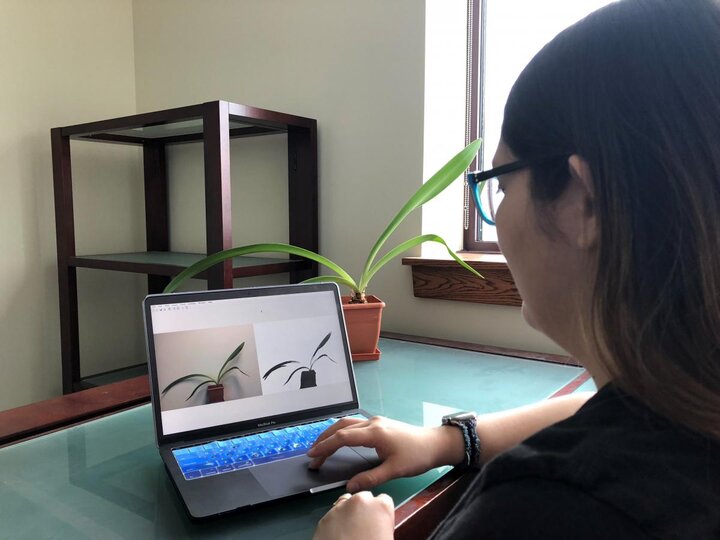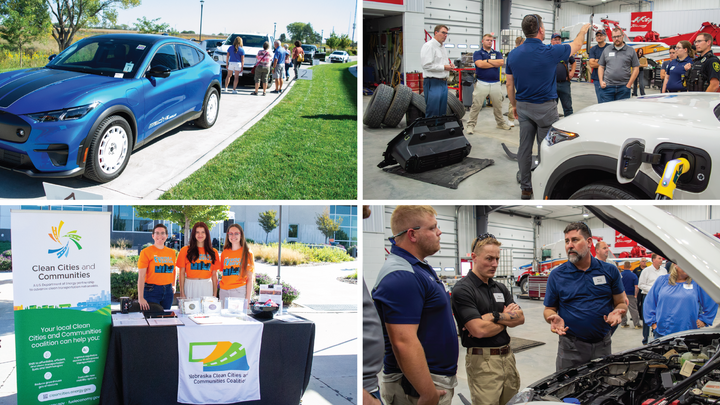Rubi Quiñones is a fifth year PhD Research Assistant and National Science Foundation (NSF) Trainee in the School of Computing at the University of Nebraska-Lincoln. She was recently recognized by the UNL newsroom for her innovation in the plant phenotyping field due to her unique research focus.

Quiñones is the only student in the computer science department to integrate a newly introduced computer vision technique with plant phenotyping. Phenotypes are the traits of a plant that are physically measurable, such as height or leaf area. Quiñones is using a technique called co-segmentation to focus on one plant throughout many images and separate the plant from the background. Her algorithms couple co-segmentation and plant phenotyping to identify phenotypes more accurately.
The University of Nebraska-Lincoln is unique in its possession of a plant phenotyping facility. This facility has a system called the LemnaTec Scanalyzer which allows users to take images of plants very quickly and perform research on a larger scale. Her work will largely benefit the environment in a way that utilizes the best of her skills in coding. This research focuses on improving crops not only to combat a changing world, but to feed more people.

Rubi Quiñones has a history with the Nebraska Transportation Center. She interned with NTC in 2016 as part of the University Transportation Center for Railway Safety’s Research Experience for Undergraduates (REU). The research-intensive ten-week program provided undergraduate engineering students the opportunity to work closely with faculty, graduate students, and undergraduate mentors and at the end of the program they presented a formal research poster and submitted a written, final report describing the results of their research.
As an intern, Quiñones received mentorship from Dr. Laurence Rilett to prepare her for a multi-disciplinary project and her future graduate research. “The shift in mental thinking was very insightful and motivating to continue performing world-changing research.” Quiñones knew of UNL’s internal programs focused on inclusion, she says “That motivated me to attend UNL since I am Hispanic and knowing that I would feel respected and included was important for my PhD journey.”
Quiñones has participated in a number of outreach programs, including MATC’s 2017 Scholars Program. In 2018 she was a part of the Regional Leadership Development Conference at McAllen, Texas to discuss the importance of graduate school and research to other attendees. She also participated in a group that provided advice for college level courses to be introduced in Lincoln Public Schools for an introduction to STEM in 2020, and in September of this year, Rubi presented her research work at the 2021 Midwest Women in Science Conference to promote her research work and the struggles of being a minority and woman in STEM. Rubi’s advice for underrepresented groups is to invest time in finding that perfect fit in university, advisor, and research project because “they are all connected for your professional and personal happiness.”




